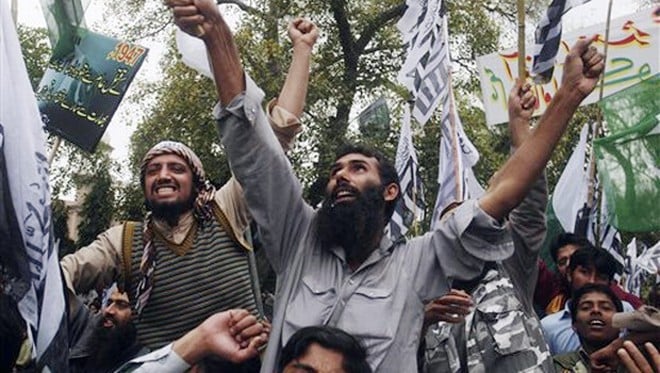
Pakistan must reimagine its national narrative

These days a question frequently directed at me by my concerned British Pakistani friends and acquaintances is about the advisable steps that may set Pakistan on the course of redemption. As simple as it may seem, the question is actually very complex and multilayered.
With the state having lost its writ, human life has lost worth and citizenry left to fend for itself. State institutions have been rendered hollow by a persistent display of inefficiency, and utter lack of political will to set things in order is clearly evident. The economy is far from viable and the political situation is no different. Public sector education is in a state of disarray. As Pakistan fails to fulfil rights and entitlements of citizenry guaranteed by the constitution, the question of the state discharging its obligations never arises.
Some columnists suggest that holding the army generals to account will halt the rot and make it possible for us to mend the situation. And, so, the widening of the accountability net will possibly provide us with the panacea of all the ills which have permeated to the very core of the Pakistani state and society.
In circumstances as precariously poised as this, thinking of the first step towards course correction in the country requires an insight of a sage. A mortal being like me cannot pretend to be one. But, despite my inadequacies, I mulled over this problem in all earnestness -- should there be corrective measures for the beleaguered state institutions, extraordinary attention on education, revamp security agencies to make them effective and responsive to the peoples’ needs…
After analysing each of the likely first and crucial steps, I dismissed them all. Because, I found, the very nature of the prevalent national narrative to be at the heart of the socio-political pathology that Pakistan is caught up in. Therefore, re-imagining Pakistan’s national narrative is the first and the most crucial step towards a new beginning. It will help us to revisit the current discourse on nationalism, which is steeped in religious exclusivism.
Curiously enough, our national narrative is extremely clear and is, therefore, divested of a nuanced deliberative content. It is predicated on religious identity, thereby excluding those adhering to other religions. Ethnic, linguistic or cultural nuances are set aside in any description of our nationhood. Socio-demographic plurality is deemed perilous and therefore one ideology is professed without any regard for the coercion and tyranny that ideological states have perpetrated in the not very remote past.
Nazi, Fascist and Stalinist states subscribed to a particular ideology in which even an iota of dissent or deviation from the top-down prescription of their national narratives was not countenanced. The situation in Pakistan is quite reminiscent of what transpired in those ideological polities. The way Ismailies have been massacred in Karachi is a clear illustration of a mindset that views any difference as a sacrilege and abomination.
Sometimes one laments the attempts to include minorities in the national narrative as a futile exercise. In fact, their exclusion has taken on a horrific form and they are being exterminated.
I, therefore, plead for radical changes in the national narrative.
Exclusivism, once adopted, becomes a process that does not stop at any specific point. So, once non-Muslims were driven to the margins in the country, the wedge of differentiation was turned to other sects. Ithna-i-Asharis and Ismailis found it extremely hard to find a niche in a narrative which was explicitly Sunni in its character and orientation.
If an analytical gaze is fixed on the Sunni characterisation of the narrative, one may discover its Deobandi direction. The mention of Mujadid Alif Sani, Shah Walliullah Dehlvi and Shabbir Ahmed Usmani, as the architects of the ideology that underpins state nationalism, testifies to the overwhelming sway of Deobandi ideas in Pakistan. Similarly, historical events, such as the Faraizi Movement in Bengal, Jihad Tehreek or more importantly the Khilafat Movement, ostensibly have no bearing on the way the Pakistan Movement evolved and subsequently culminated in the state of Pakistan. It can also be argued that Khilafat Movement essentially was a Deobandi project, disapproved by the founder of Pakistan.
For the last 30-odd years, the religious content of the national narrative has been mostly articulated by madrassas and maulvis. It is now up to the state authorities to either let madrassas and maulvis exercise their prerogative as the proponents of our national narrative or express clearly that they want to effect some meaningful change. It is a stark anomaly that the madrassas are allowed to operate in Pakistan despite the fact that their agenda runs counter to the interest and integrity of a state, contained in specific geography.
As a first step towards bailing us out of our current predicament, one may suggest the universities take over the charge of religious studies. The discourse on religion may then emanate from here.
A national narrative which has an all-inclusive humane character is of utmost importance. But, of course, it is easier said than done.